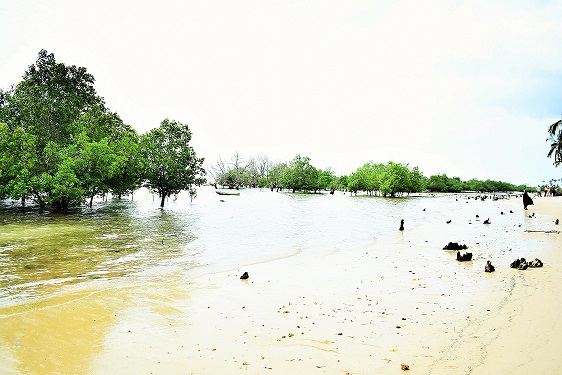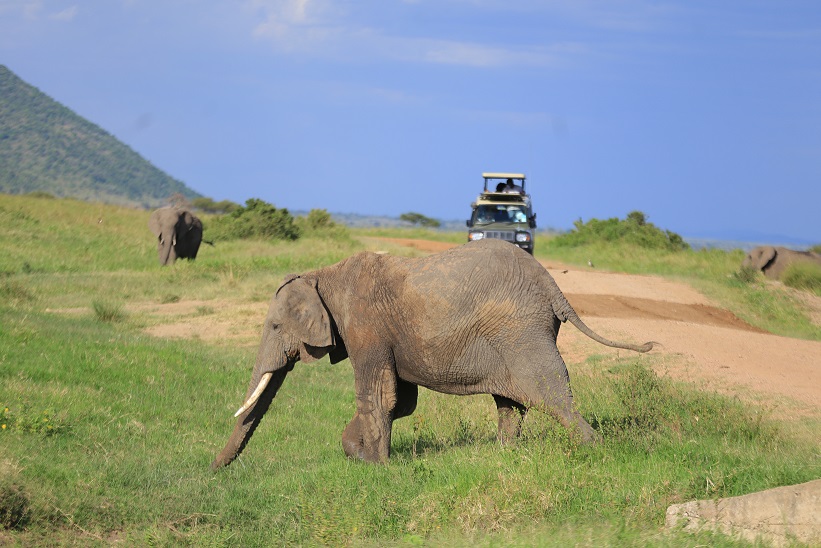
By Joyce Chimbi – j.chimbi@gmail.com
Kenya is one of the 10 mega-biodiverse nations globally. The East African nation has more than 35,000 species of flora and fauna besides a unique diversity of ecosystems ranging from mountains, forests, rangelands, arid lands, croplands and urban areas to marine and inland waters.
Kenya’s capital Nairobi is the only city that Is home to a national park with its 117 square kilometres of green space filled with wildlife only minutes-drive from the Central Business District.
As an all-year-round tourist attraction, tourism is a pillar of Kenya’s economy. To leverage on the country’s unique and magnificent coastal natural resources that have made the region a tourism hub, the Ministry of Mining, Blue Economy and Maritime Affairs of Kenya in collaboration with the Intergovernmental Authority on Development (IGAD) have validated the National Blue Economy Strategy 2023-2027.
As the world suffers effects of climate change and Africa is thrust in the frontlines of a climate and biodiversity crisis, Kenya is setting the pace in halting the speed of the twin crises. According to Tessy Nikkie, a young climate and biodiversity activist who was speaking during the Africa Climate Summit, the country is mitigating climate change effects by increasingly making concerted efforts that integrate biodiversity conservation and restoration

“As the host of the inaugural Africa Climate Summit, Kenya is sending a message that green economy is a priority and that economic development will not be separated from the protection, conservation and preservation of environment and all its ecosystems,” says Prof Jackson Kariuki, who was also a delegate at the Africa Climate Summit held in Nairobi from September 4 to 6.
The Summit themed “Driving Green Growth and Climate Finance Solutions for Africa and the World” brought together more than 30,000 delegates, with biodiversity at the heart of discussions. Government data shows that in Kenya, forests account for an estimated 3.6 per cent of the gross domestic product.
Kenya has an extensive Indian Ocean coastline estimated at 1,420km. The total mangrove cover in this East African nation is approximately 61,271ha.
The country is rich in animal and plants species and has shown a notable commitment to unlock development in line with UN’s Sustainable Development Goals without harming the environment and its unique, diverse ecosystems. In 2022, Kenya’s tourism performance continued on a recovery path. International tourist arrivals were 1,483,752, a 70.45 per cent increase from 2021 arrivals of 870,465. Inbound receipts in the year grew to Sh268.09 billion.
The East African economic and tourism hub’s ecological systems are central to lives and livelihoods locally. For instance, the Great Rift Valley’s many lakes, favourable climate and rich soils provide food and livelihoods for more than 12 million people in the Horn of Africa.
“There are many ongoing processes and Kenya is building on each of these climate and biodiversity plans. Towards the end of 2022, there were negotiations by the representatives of the Parties to the United Nations Convention on Biological Diversity (CBD) which concluded the fourth meeting of the Open-Ended Working Group (OEWG4) on the Post-2020 Global Biodiversity Framework in Nairobi, reversing loss of biodiversity before the end of this decade,” says Aisha Munira, a climate change expert based in Tanzania.
She says while there is still much to be done to escalate progress on reversing biodiversity loss in 2030, Kenya is on track as it has demonstrated a commitment to achieve ambitious goals around climate change and biodiversity. These also provide the country the best chance to revamp the tourism sector.
Despite Kenya contributing less than 0.1 per cent of the global greenhouse gas emissions per year, the country’s pursuit of a low carbon and resilient green development pathway produced a most ambitious Nationally Determined Contribution (NDC) to cut greenhouse gasses by 32 per cent by 2030 in line with the Paris Agreement.
Jerry Mark Otieno, a biodiversity researcher based in Kampala, Uganda says Kenya’s commitment to salvaging and protecting its biodiversity is aligned to the Kunming-Montreal Global Biodiversity Framework (GBF) adopted on December 19, 2022 at the 15th meeting of the Conference of Parties (CoP 15) of the Convention on Biological Diversity (CBD) in Montreal, Canada.
The new framework has been termed the “last chance” to halt and reverse destruction of the natural world by 30 per cent by 2030”.
The GBF aims to “address biodiversity loss, restore ecosystems, protect the rights of Indigenous Peoples and Local Communities (IPLCs) and mobilise $30 billion yearly conservation aid for developing countries by the end of the decade.”
Prof Kariuki says: “What Kenya has done by hosting the inaugural Africa Climate Summit is to elevate itself so that when we speak about the Paris Agreement, the Kunming-Montreal framework, we also speak about the Nairobi Declaration. Kenya has progressive policies and we only need to action what we already have on paper from policy to action.”
The Africa Climate Summit was a crucial moment for Kenya’s effort towards climate action and a low carbon green growth agenda that places people in all the 47 counties, climate and nature at its core.








